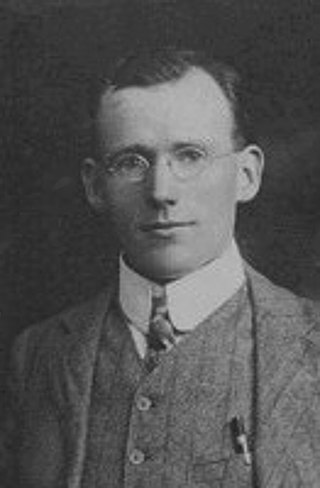Related Research Articles

Trotskyism is the political ideology and branch of Marxism developed by Russian revolutionary Leon Trotsky and some other members of the Left Opposition and Fourth International. Trotsky described himself as an orthodox Marxist, a revolutionary Marxist, and a Bolshevik–Leninist as well as a follower of Marx, Engels, Vladimir Lenin, Karl Liebknecht, and Rosa Luxemburg.

The Fourth International (FI) was established in France in 1938 by Leon Trotsky and his supporters, having been expelled from the Soviet Union and the Communist International.
James "Jock" Ritchie Haston (1913–1986) was a Trotskyist politician and General Secretary of the Revolutionary Communist Party in Great Britain.
The Marxist Group was an early Trotskyist group in the United Kingdom.
The Workers Party of South Africa (WPSA) was the first Trotskyist organisation in South Africa to have a national base. It published a regular newspaper, Spark.
The Non-European Unity Movement (NEUM) is a Trotskyist organisation formed in South Africa in 1943. It had links to the Workers Party of South Africa (WPSA), the first countrywide Trotskyist organisation, and was initially conceived as a broad protest front. It proposed a 10 Point Programme of radical reforms. It stressed non-racialism, meaning that it rejected race-based organising, unlike the main nationalist groups of the time, was highly critical of the South African Communist Party and the African National Congress, and made a principle of non-collaboration with the apartheid regime and its allies
The South African Congress of Democrats (SACOD) was a radical left-wing white, anti-apartheid organization founded in South Africa in 1952 or 1953 as part of the multi-racial Congress Alliance, after the African National Congress (ANC) invited whites to become part of the Congress Movement.
The International Socialist League of South Africa was the earliest major Marxist party in South Africa, and a predecessor of the South African Communist Party. The ISL was founded around the syndicalist politics of the Industrial Workers of the World and Daniel De Leon.
The International Committee of the Fourth International (ICFI) is the name of two Trotskyist internationals; one with sections named Socialist Equality Party which publishes the World Socialist Web Site, and another linked to the Workers Revolutionary Party in the UK.
The French Turn was the name given to the entry between 1934 and 1936 of the French Trotskyists into the French Section of the Workers' International. The French Turn was repeated by Trotskyists in other countries during the 1930s.
The International Communist League (Fourth Internationalist), earlier known as the international Spartacist tendency (iSt) is a Trotskyist international. Its largest constituent party is the Spartacist League (US). There are smaller sections of the ICL (FI) in Mexico, Canada, France, Germany, Ireland, Italy, Japan, South Africa, Australia, Greece and the United Kingdom.
Baruch Hirson was a South African political activist, academic, author, and historian, who was jailed for nine years in apartheid-era South Africa before moving to England in 1973. He was co-founder of the critical journal Searchlight South Africa, and in 1991, a critic of what he referred to as Stalinist methods used by the African National Congress (ANC).

The Socialist Workers Party (SWP) is a Trotskyist communist party in the United States. The SWP began as a group that was expelled from the Communist Party USA for supporting Leon Trotsky over Soviet leader Joseph Stalin.
Paul Trewhela is a South African journalist and a former political prisoner.

Edward Grant was a South African Trotskyist who spent most of his adult life in Britain. He was a founding member of the group Militant and later Socialist Appeal.
Orthodox Trotskyism is a branch of Trotskyism which aims to adhere more closely to the philosophy, methods and positions of Leon Trotsky and the early Fourth International, Vladimir Lenin and Karl Marx than other avowed Trotskyists.

Isaac Bangani Tabata OLG (1909-1990), also known as "I.B" or "Tabby", was a South African political activist, author and orator. A Marxist in the Trotskyist tradition, he was central to the Non-European Unity Movement from its inception in 1943, as well as in the African Peoples' Democratic Union of Southern Africa (APDUSA) formed 1961. He is notable for his innovative analyses, theoretical work and lifelong commitment to the movement. Tabata was married to Jane Gool, a major political activist.
The African Laundry Workers' Union was a trade union representing cleaning workers in South Africa.

David Ivon Jones was a Welsh communist, newspaper editor, and political prisoner, most famous as a leading opponent of South African racial segregation and for being one of the first white activists in South Africa to fight for equal rights for black South Africans. Jones was also one of the founders of the Communist Party of South Africa, and in 1917 played a leading role in the formation of South Africa's first all-black trade union, the Industrial Workers of Africa (IWA). Later in life he became one of the first people to translate Vladimir Lenin's works into English. He also started some of the first night-classes for African workers, and in 1919 was convicted and imprisoned for publishing a leaflet supporting both communism and racial equality, in what was the first major court case against communism in South Africa's history. He is credited as being the most influential South African socialist of his time.
Max Gordon was a South African trade union leader and Trotskyist activist.
